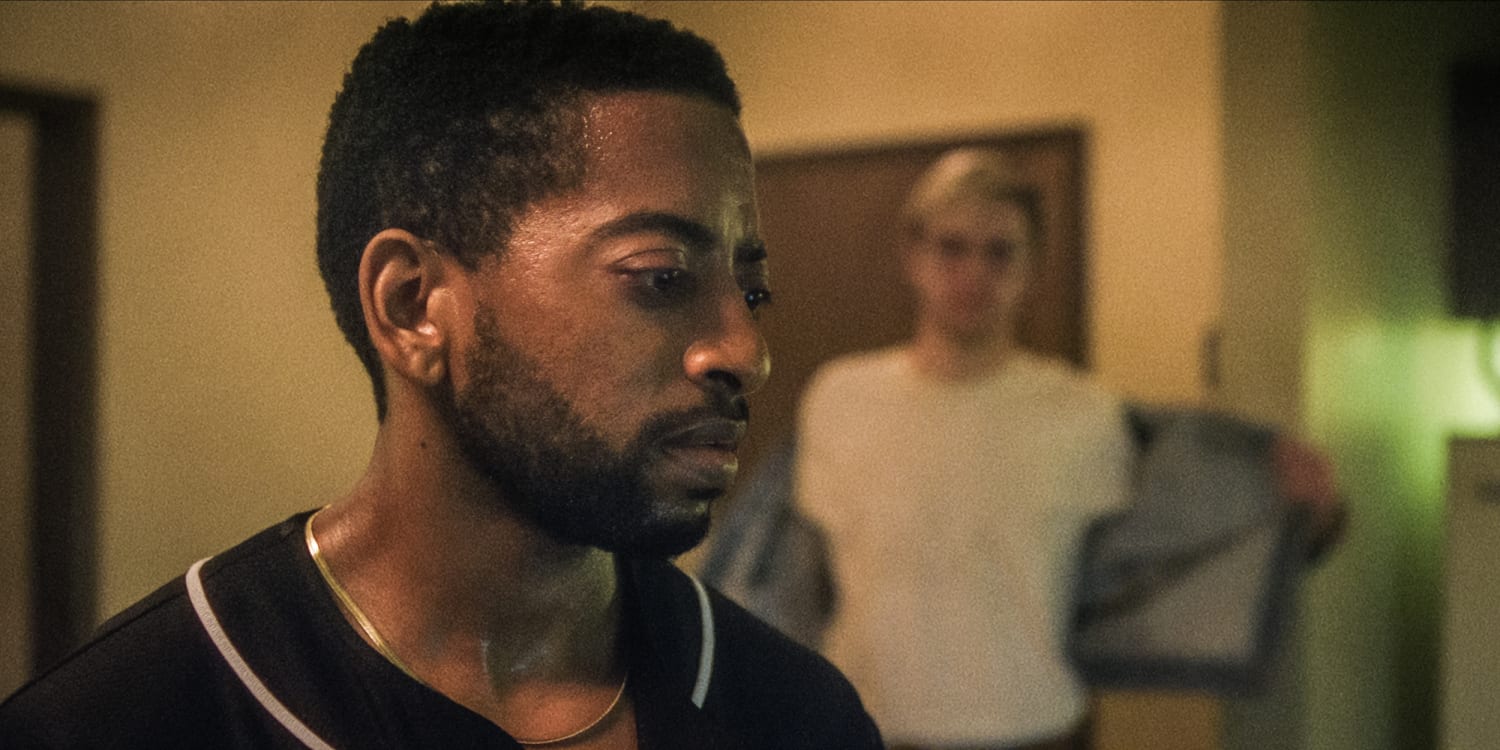Eric Wynn said he dropped to his knees in tears when he saw the photos of 16 of the men and boys killed by Jeffrey Dahmer in a local Milwaukee paper in the summer of 1991.
Wynn, now 59, said that when he was 18 he would drive from his hometown in Illinois across the Wisconsin border into Milwaukee to go to gay bars. He said he was also one of the only regular Black drag performers at Club 219, a gay club that Dahmer frequented.
He said he amassed a small “fan group” of young Black men who he would hang out with after his performances at the club. Wynn said one of them, Tony Hughes, was deaf and taught him to sign his ABCs.
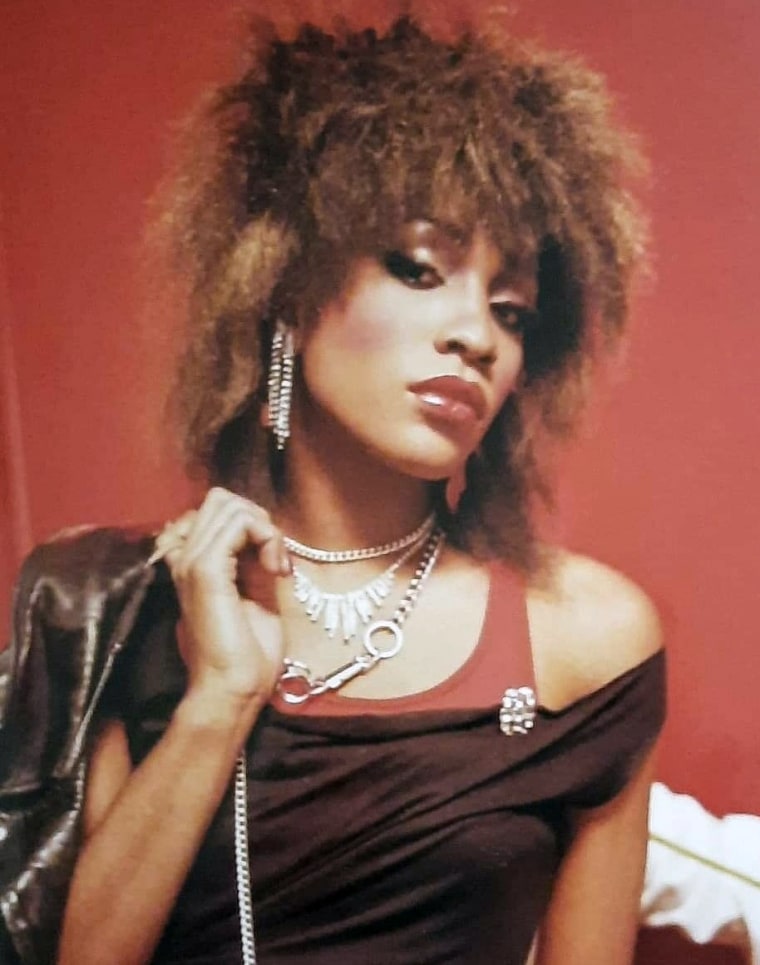
“They used to come in there to see me because they actually had representation,” he said of these young men.
But then, some of them stopped coming. Wynn said he didn’t think much of it at the time, but when he saw the front page of the paper on that summer’s day over three decades ago, it suddenly made sense.
“He had gotten every single one of those boys, and they were all Black,” Wynn said. “It ripped my heart out.”
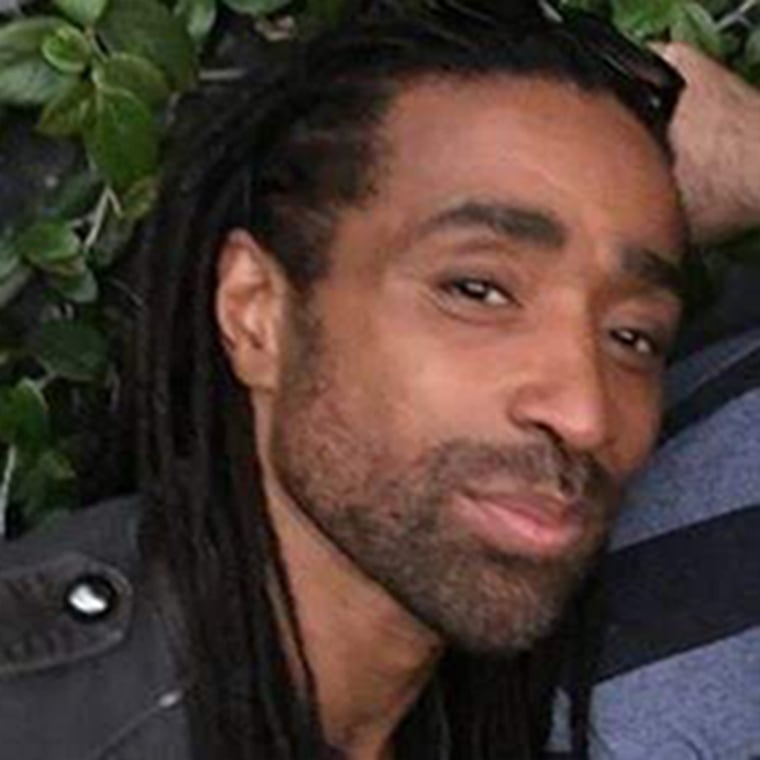
Now, 30 years later, Wynn and other Black queer people who are from or lived in Milwaukee before Dahmer’s arrest in July 1991 say they are reliving painful experiences due to a new dramatized Netflix show about the murders. “Monster: The Jeffrey Dahmer Story,” which debuted on Sept. 21, is part of the streaming giant’s Halloween offerings.
Some described the series as too personally difficult to watch, while Wynn said he believes the director, Ryan Murphy — who is gay and nearly always includes queer representation in his projects — owes the LGBTQ community and the victims’ families an apology.
“Ryan Murphy has just been so amazing for the community,” Wynn said, adding that he’s a big fan of another show Murphy directed called “Pose,” which is about New York City’s ballroom scene, a subculture created by queer and trans people of color in the late 1960s. “And then to turn around and just slap us like this for profit and sensationalism — I was so disappointed.”
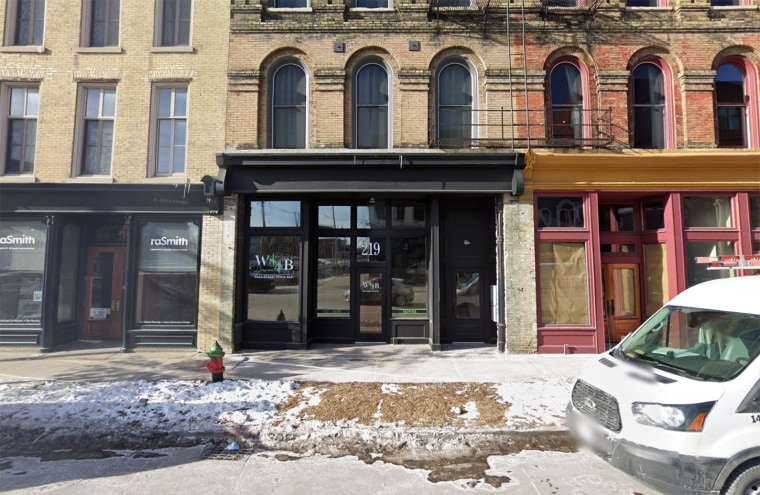
‘Dahmer’s point of view’
Netflix and Ryan Murphy have not responded to NBC News’ requests for comment, but the creators and stars of the show have said that their goal was to center the stories of Dahmer’s victims.
“It’s called ‘The Jeffrey Dahmer Story,’ but it’s not just him and his backstory,” Evan Peters, who plays Dahmer in the series, told Netflix Queue, the streaming service’s digital publication. “It’s the repercussions; it’s how society and our system failed to stop him multiple times because of racism and homophobia. Everybody gets their side of the story told.”
Dahmer, who was fatally beaten in prison in 1994, confessed to killing 17 men and boys between 1978 and 1991. His victims ranged in age from 14 to 33, and most of them were Black.
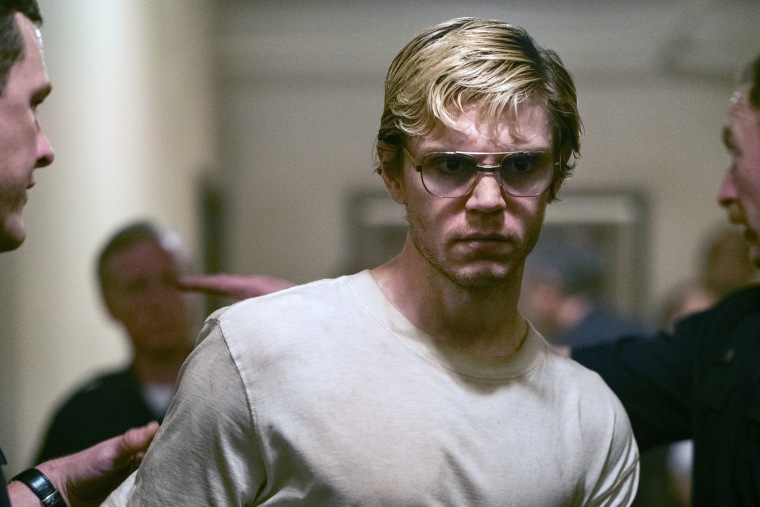
Peters said Murphy gave the cast and crew one rule throughout the making of the show: “That it would never be told from Dahmer’s point of view.”
At the same time, early episodes of the series depict a dramatized version of Dahmer’s childhood, during which his mother struggled with her mental health and his parents eventually divorced. It also shows how he and his father would pick up roadkill and dissect it in the basement of their home. Dahmer later told the FBI that he fantasized about the organs and used techniques he learned with his dad on his victims.
The show also depicts portions of Dahmer’s crimes in graphic detail, like when he bludgeons 18-year-old Steven Hicks, his first victim, to death with a barbell.
‘Making money off of this tragedy’
The conversation surrounding the controversial aspects of Netflix’s Dahmer series was ignited after Rita Isbell, whose brother Errol Lindsay was killed by Dahmer, criticized the series in an interview published by Insider on Sept. 26. Isbell said Netflix did not contact her to tell her they would be recreating the emotional victim’s impact statement she gave in court in 1992.
“When I saw some of the show, it bothered me, especially when I saw myself — when I saw my name come across the screen and this lady saying verbatim exactly what I said,” Isbell told Insider. “I was never contacted about the show. I feel like Netflix should’ve asked if we mind or how we felt about making it. They didn’t ask me anything. They just did it.”
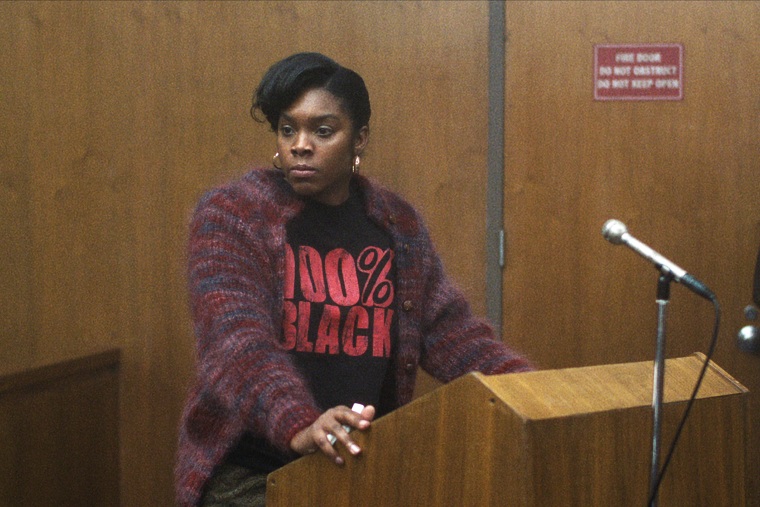
She added, “It’s sad that they’re just making money off of this tragedy.”
Eric Perry, a cousin of Isbell and Lindsay, said on social media that the series is “retraumatizing over and over again, and for what? How many movies/shows/documentaries do we need?”
To date, there are at least a dozen narrative films, documentaries and TV series centered on the infamous killer, who was dubbed the Milwaukee Cannibal and Milwaukee Monster by the media after the grisly details of his crimes were made public. Netflix also plans to release a docuseries on Oct. 7 titled “Conversations With a Killer: The Jeffrey Dahmer Tapes.”
Some Black queer Milwaukeeans say the series has been similarly retraumatizing for them — both because they or their families knew the victims and because of the culture of fear that Dahmer’s murders created for queer people of color in the city.
Justin Roby, the director of HIV care at Diverse & Resilient, an LGBTQ health advocacy group based in Milwaukee, said the series was “hard to watch, to put it lightly.”
Roby, 30, was born after Dahmer’s arrest, but he said the story of the notorious murderer has always been difficult for him, because he was raised in a household where the fear of what happened to Dahmer’s victims was instilled in him from a young age, even before he came out as gay.
After he watched the Netflix series, he said he noticed reactions on social media from Milwaukeeans across the age spectrum who knew the victims. He said members of his own family regularly spent time with Tony Hughes, an aspiring model and one of Dahmer’s victims, at a local bar called Tina’s.
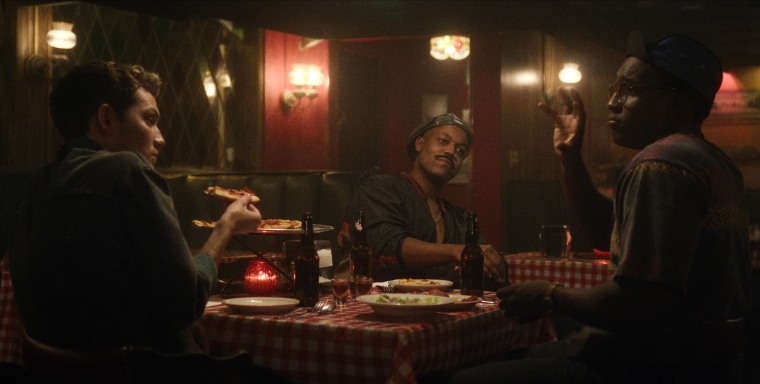
“The impact of this story and the trauma that it goes through doesn’t just stop with us watching the actual show: Black queer people are then stuck to watch our news feeds as other people react, and then argue back and forth,” Roby said. “We were in the thick of this, because all of Milwaukee is having this same reaction or has some type of connection to the victims.”
Ricardo Galaviz, associate director of the Milwaukee LGBT Community Center, said he has seen parts of the series, but he is reluctant to watch all of it.
Similarly to Roby, he said the story brings up painful memories. Now 40, he recalled coming out at 17 “and then hearing my parents associate me with Jeffrey Dahmer, or other people associate my community with a serial killer.”
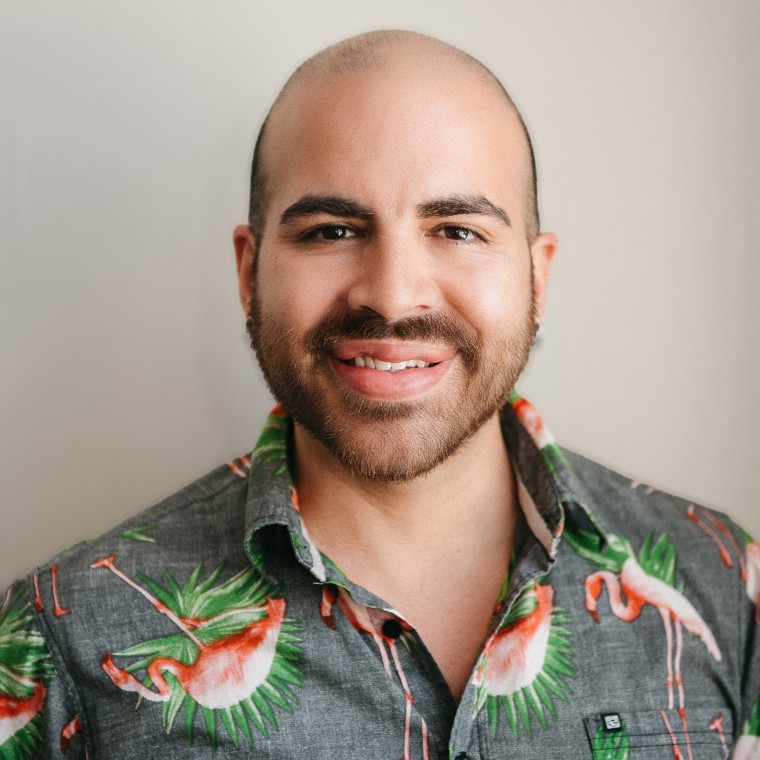
Galaviz said he was into fashion when he was growing up, so he wanted red bed sheets, and he also had mannequins in his room — two things that he said worried his parents because of their potential ties to Dahmer (Dahmer stole a male mannequin from a store, which is depicted in the show).
“But at the same time, I try to find the silver lining,” Galaviz said. “Maybe it’s a good thing to start talking about these things again, and remember our history.”
‘This is problematic television’
Nationally, reviews of “Monster: The Jeffrey Dahmer Story” on social media have been mixed.
Many people applauded the emotional sixth episode, which is told from the perspective of Hughes (played by actor Rodney Burford), a Black, gay and deaf man. Some said the show also tackles how homophobia and racism from police allowed Dahmer to continue his crimes for so long.
But critics of the show said it portrays Dahmer sympathetically and appears to blame his murders in part on his difficult childhood.
Some also note that just one episode of the series — the one about Hughes — is dedicated to telling a victim’s story, and a few critics say that even that episode romanticized Hughes’ relationship with Dahmer. In reality, it’s unclear how close the two actually were. Hughes’ mother, Shirley, told The Associated Press in 1991 that the last time she saw her son, in May 1991, he mentioned a friend named Jeffrey.
Additionally, some Black queer viewers called out the show for attempting to turn Dahmer’s murders of mostly Black gay men into a form of entertainment.
Some white queer men, critics have noted, have joked about how attractive Dahmer is, both the real-life Dahmer and Dahmer as portrayed by Peters.
Despite the controversy, the show has reportedly garnered the most views during its first week of streaming than any other Netflix show on record.
Frank Leon Roberts, an assistant professor of English at Amherst College, said the show and the way it’s being discussed are “almost a sick celebration” of Dahmer.
“This is problematic television,” he said. “This show is obviously retraumatizing for not just the families of Dahmer’s victims, but to queer people of color and Black queer people, in particular, who are in a moment where we are seeing a continued rise in violence and hate crimes against LGBTQ people of color and LGBTQ people in general.”
He said he can’t imagine a scenario where, had Dahmer’s victims been cisgender, straight white women, that there would be a Netflix show presented in the same way.
“I hear his name quite a bit over the course of the past few weeks,” Roberts said. “I don’t hear the names of people like Tony Hughes. Any discourse which centers Jeffrey Dahmer and doesn’t really center the victims is problematic.”
Wynn agreed. He said he will not watch the show and wants to hear from director Ryan Murphy.
“For him to flip the script after ‘Pose’ and then turn around and basically glorify Dahmer,” Wynn said, “making him out like he’s some sort of victim, it’s like, ‘How dare you? How dare you?’”
Follow NBC Out on Twitter, Facebook & Instagram.
Source: | This article originally belongs to Nbcnews.com

